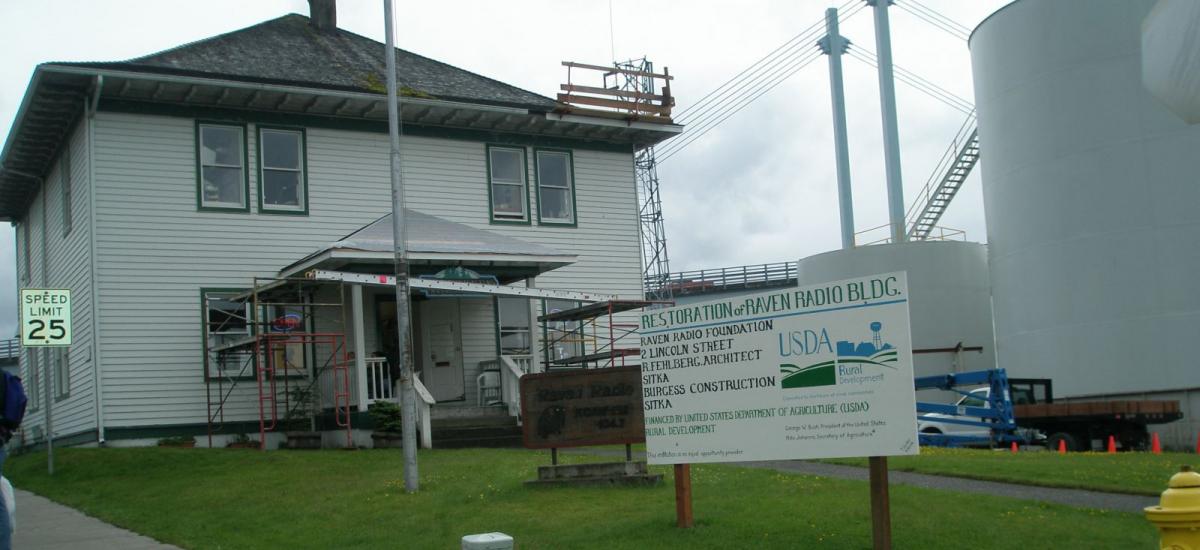
Overview
Learn the basics of Section 106 of the National Historic Preservation Act. Explore practical approaches to working through the compliance process, including identification, eligibility, and integrity of different types of properties, places, and landscapes. Review other federal laws that may require consideration of historic properties. Consider how to engage in consultation and coordination throughout the process. Discuss how to differentiate direct and indirect effects, address the impact of cultural biases, and understand the principles behind agreement documents.
Faculty
Allyson Brooks, Ph.D., Washington State Historic Preservation Officer; formerly worked for Minnesota DOT, the South Dakota Preservation Office, and the U.S. Forest Service; specializing in transportation, tribal consultation, large cultural landscapes/TCPs, Section 106, historical archaeology, and GIS
or
Ethel R. Eaton, Ph.D., policy experience working with Section 106 of the National Historic Preservation Act for the Virginia Department of Historic Resources and the Maryland Historical Trust; past excavation, teaching, and research positions at universities and museums
or
Claudia Nissley, president, C. Nissley Environmental Consultants; a nationally recognized expert in cultural heritage laws and practices; author, educator, and consultant; former executive manager with the Advisory Council on Historic Preservation and governor-appointed Wyoming State Historic Preservation Officer
or
Kristen M. Zschomler, RPA, historian and archaeologist with the Federal Railroad Administration’s Environmental Program Management Office; previously a senior cultural resources specialist with Mead & Hunt and manager of the Cultural Resources Unit, Minnesota Department of Transportation, she specializes in transportation projects and process improvements
Evaluation Comments
"[The instructor] did a great job making the information understandable! This week I completed my first Section 106 documentation project using the knowledge gained from the seminar."
"[The seminar] . gave me detailed information and tools to use in my work."
"Wonderful introductory overview for me, and it will be great to have the handbook to refer to [later]."
"[The seminar] answered many questions I had about current regulations."
"[The seminar] clarified the Section 106 process from start to finish and the application of criteria of effect."
"I really enjoyed this class; it was very interactive and interesting."
"[The seminar offered] very clear coverage of all elements of new Section 106 regulations; clarified roles of NEPA and Section 106 and how they interrelate."
Participants
Cultural resource and environmental consultants; federal, state, local, and tribal officials and planners; curators and collections managers.
Related Trainings
NEPA Compliance and Cultural Resources
NEPA, Section 106, and Section 4(f) Coordination for Transportation Projects
Section 106: The Basics for Planners, Project Managers, and Developers
Section 106: A Review for Experienced Practitioners
Section 106: Resource Identification
Section 106: The Meaning of Effects
Section 106: Effective Participation and Response Strategies
Section 106: Agreement Documents
Location and Dates
- Fredericksburg, VA
March 19-20, 2024
in cooperation with the National Park Service,
Fredericksburg & Spotsylvania National Military Park,
and the University of Mary Washington,
Department of Historic Preservation
- Atlanta, GA
May 7-8, 2024
in cooperation with
the Georgia Department of Community Affairs,
Historic Preservation Division
- Columbus, OH
September 4-5, 2024
in cooperation with the
State Historic Preservation Office of the Ohio History Connection
- San Diego, CA
September 17-18, 2024
offered in conjunction with
Traditional Cultural Places
in cooperation with ICF
Cost
$700 2 days / in-person seminar registration
$300 2 days / in-person seminar registration for full-time student; identification must be submitted at time of pre-registration
NPI scholarship application, click here
Discounted rates are available for multiple seminars taken during the same week.
$1,100 4 days / in-person seminar registration
$400 4 days / in-person seminar registration for full-time student; identification must be submitted at time of registration
Registration
Pre-registration is required and recommended at least 8 weeks prior to in-person seminars to avoid cancellations due to low enrollment. No payment information is required to pre-register.
To pre-register, click here.
Registration will open to pre-registered participants 8 weeks prior to the seminar. NPI will email a link to the registration page and pre-registered places will be held until 4 weeks prior to the seminar. Payment information is required to register.
Seminar access is limited to the participant registered and enrolled in the seminar.
Cancellations must be received 4 weeks prior to the seminar; registrations are refundable less any fees charged to NPI. A rescheduling fee may be applied to later, non-refundable cancellations. Participants receive a full refund if the seminar is cancelled by NPI. NPI reserves the right to substitute an instructor if necessary and will notify participants whenever possible.
How to register once you have received the registration link:
• Create/access a participant account at https://training.npi.org
• Secure a place with one of the following payment options:
• Credit/debit card or PayPal payment [using PayPal credit card processing] from participant account [https://training.npi.org]
• Credit/debit card [contact NPI to use an alternative credit card processor]
• Training voucher/purchase order [email to info@npi.org]
• Check payable to "National Preservation Institute" [mail to NPI, P.O. Box 1702, Alexandria, VA 22313]
• ACH transfer [contact NPI for details]
Seminar Location, Hours, and Hotels
Information on seminar location, hours, and conveniently located hotels is available online to registered participants. Seminars generally are held from 9 a.m. to 5 p.m.
Certificates of Attendance
Certificates of attendance are available online upon completion of training. Instructions for receiving certificates are included in the NPI Welcome Letter, available to participants once they are registered online. A certificate for a one-day seminar provides 6 training hours, a two-day seminar provides 12 training hours, and a three-day seminar provides 18 training hours.
Customized Training
NPI offers customized training to meet specific organizational needs at a location and time convenient for the sponsor. In-person seminars, online, on-demand courses, and/or webinars may be based on current NPI offerings or new preservation-related training may be developed.
Questions?
Contact NPI at 703.765.0100 or info@npi.org.
